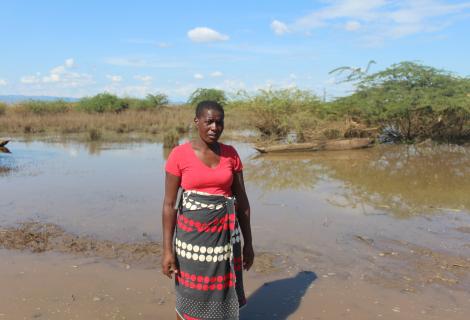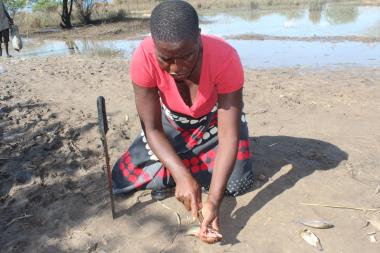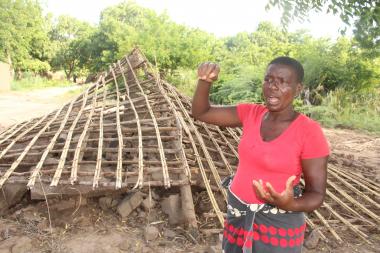Tropical Storm Anna Impact

No easy road to recovery for affected smallholder farmers in Malawi
In a normal month of February, Esnert Thaison of Chisamba Village in Malawi’s southernmost district of Nsanje spends most of her time in the crop-field or at a Village Savings and Loans (VSL) group meeting.

But this year, the month of February 2022 has subjected the 45-year-old Thaison to a strange way of providing for her family. Instead of being in her crop-field or at her much-cherished VSL meeting, Thaison is sitting on the Shire River bank, gutting fish.
“I have no option but to do this piecework so I can feed my children” says Thaison, a single mother of eight children.
“The water you see behind me is not in the Shire River course. Actually, the normal Shire River course is some two hundred metres away from here. I have a farmland some 100 metres from here. I planted maize and some vegetables there, but they are got wahsed away by the floods from Shire River. All hope is lost.”
Thaison says for every 50 kilograms (kg) of fish she guts, she is given K1000 (about US$1.20) which she uses to buy food for the children.
“Gutting 50 kgs of fish is a backbreaking task; it takes me almost half of the day. But since I need money to buy food for my children, I still must do it. Worse still, there are not many piece works available here,” she says.

Thaison, however, acknowledges that the piecework has some risks, including fishermen who want to take advantage for her plight to sleep with her. Despite such sexual advances from fishermen, Thaison says she has been holding her ground.
“I vowed never to indulge in any prostitution, or commercial sex work, no matter how tough the situation is” she says.
Thaison wishes she stayed in the camp at Bangula. She, however, says the shortage of food in camp has forced her to resort to piecework so she can earn money to fend for her “big family”.
A survivor of the devastating Tropical Storm Anna that also destroyed lives, houses, property, Thaison is one of smallholder farmers whose crops have been washed away by the raging floods that, according to Malawi’s Department of Disaster Management Affairs (DODMA) affected the country’s seventeen districts, mainly in the southern Malawi.
Reports by DODMA indicate that at least 77, 532 hectares of crops, mainly maize, groundnut, soybeans, tobacco, rice, and cotton, have been either washed away or submerged in six affected districts namely, Phalombe, Mulanje, Mangochi, Balaka, Chikwawa and Nsanje.
Certainly, if relief and resilience support towards Thaison and many other smallholder farmers do not come through, it will exacerbate inequalities and poverty levels in the country, especially in districts affected by disasters.
Thaison wishes to replant as soon as the floods dry up and appeals to government and well-wishers to support her with farm inputs such as seeds and fertilizer.
“I can’t keep living on piecework or hoping for food support in the camp. Once the floods are gone, I will need to go back to farming so I can support my family, as I used to,” she says.